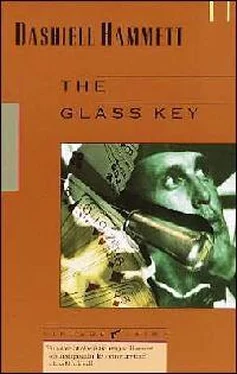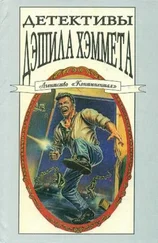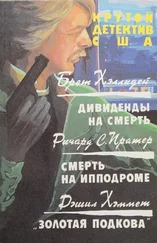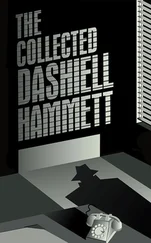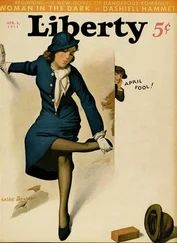Дэшил Хэммет - The Glass Key
Здесь есть возможность читать онлайн «Дэшил Хэммет - The Glass Key» весь текст электронной книги совершенно бесплатно (целиком полную версию без сокращений). В некоторых случаях можно слушать аудио, скачать через торрент в формате fb2 и присутствует краткое содержание. Год выпуска: 1931, Жанр: Крутой детектив, на английском языке. Описание произведения, (предисловие) а так же отзывы посетителей доступны на портале библиотеки ЛибКат.
- Название:The Glass Key
- Автор:
- Жанр:
- Год:1931
- ISBN:нет данных
- Рейтинг книги:5 / 5. Голосов: 1
-
Избранное:Добавить в избранное
- Отзывы:
-
Ваша оценка:
- 100
- 1
- 2
- 3
- 4
- 5
The Glass Key: краткое содержание, описание и аннотация
Предлагаем к чтению аннотацию, описание, краткое содержание или предисловие (зависит от того, что написал сам автор книги «The Glass Key»). Если вы не нашли необходимую информацию о книге — напишите в комментариях, мы постараемся отыскать её.
The Glass Key — читать онлайн бесплатно полную книгу (весь текст) целиком
Ниже представлен текст книги, разбитый по страницам. Система сохранения места последней прочитанной страницы, позволяет с удобством читать онлайн бесплатно книгу «The Glass Key», без необходимости каждый раз заново искать на чём Вы остановились. Поставьте закладку, и сможете в любой момент перейти на страницу, на которой закончили чтение.
Интервал:
Закладка:
He nodded. His face was placid.
Her knuckles were white over the bench‑edge. Her voice was parched asking: "Why?"
He rose from the sofa and crossed to the fireplace to drop the remainder of his cigar into the fire. When he returned to his seat he crossed his long legs and leaned back at ease. "The other side thinks it's good politics to make people think that," he said. There was nothing in his voice, his face, his manner to show that he had any personal interest in what he was talking about.
She frowned. "But, Mr. Beaumont, why should people think it unless there's some sort of evidence, or something that can be made to look like evidence?"
He looked curiously and amusedly at her. "There is, of course," he said. "I thought you knew that." He combed a side of his mustache with a thumb‑nail. "Didn't you get any of the anonymous letters that've been going around?"
She stood up quickly. Excitement distorted her face. "Yes, today!" she exclaimed. "I wanted to show it to you, to—"
He laughed softly and raised a hand, palm out in an arresting gesture. "Don't bother. They all seem to be pretty much alike and I've seen plenty of them."
She sat down again, slowly, reluctantly.
He said: "Well, those letters, the stuff the Observer was printing till we pulled it out of the fight, the talk the others have been circulating" — he shrugged his thin shoulders—"they've taken what facts there are and made a pretty swell case against Paul."
She took her lower lip from between her teeth to ask: "Is — is he actually in danger?"
Ned Beaumont nodded and spoke with calm certainty: "If he loses the election, loses his hold on the city and state government, they'll electrocute him."
She shivered and asked in a voice that shook: "But he's safe if he wins?"
Ned Beaumont nodded again. "Sure."
She caught her breath. Her lips trembled so that her words came out jerkily: "Will he win?"
"I think so."
"And it won't make any difference then no matter how much evidence there is against him, he'll—" her voice broke " — he'll not be in danger?"
"He won't be tried," Ned Beaumont told her. Abruptly he sat up straight. He shut his eyes tight, opened them, and stared at her tense pale face. A glad light came into his eyes, gladness spread over his face. He laughed — not loud but in complete delight — and stood up exclaiming: "Judith herself!"
Janet Henry sat breathlessly still, looking at him with uncomprehending brown eyes in a blank white face.
He began to walk around the room in an irregular route, talking happily — not to her — though now and then he turned his head over his shoulder to smile at her. "That's the game, of course," he said. "She could put up with Paul — be polite to him — for the sake of the political backing her father needed, but that would have its limits. Or that's all that would be necessary, Paul being so much in love with her. But when she decided Paul had killed her brother and was going to escape punishment unless she— That's splendid! Paul's daughter and his sweetheart both trying to steer him to the electric chair. He certainly has a lot of luck with women." He had a slender pale‑green‑spotted cigar in one hand now. He halted in front of Janet Henry, clipped the end of the cigar, and said, not accusingly, but as if sharing a discovery with her: "You sent those anonymous letters around. Certainly you did. They were written on the typewriter in the room where your brother and Opal used to meet. He had a key and she had a key. She didn't write them because she was stirred up by them. You did. You took his key when it was turned over to you and your father with the rest of his stuff by the police, sneaked into the room, and wrote them. That's fine." He began to walk again. He said: "Well, we'll have to make the Senator get in a squad of good able‑bodied nurses and lock you in your room with a nervous break‑down. It's getting to be epidemic among our politicians' daughters, but we've got to make sure of the election even if every house in town has to have its patient." He turned his head over his shoulder to smile amiably at her.
She put a hand to her throat. Otherwise she did not move. She did not speak.
He said: "The Senator won't give us much trouble, luckily. He doesn't care about anything — not you or his dead son — as much as he does about being re‑elected and he knows he can't do that without Paul." He laughed. "That's what drove you into the Judith role, huh? You knew your father wouldn't split with Paul — even if he thought him guilty — till the election was won. Well, that's a comforting thing to know — for us."
When he stopped talking to light his cigar she spoke. She had taken her hand down from her throat. Her hands were in her lap. She sat erect without stiffness. Her voice was cool and composed. She said: "I am not good at lying. I know Paul killed Taylor. I wrote the letters."
Ned Beaumont took the burning cigar from his mouth, came back to the lyre‑end sofa, and sat down facing her. His face was grave, but without hostility. He said: "You hate Paul, don't you? Even if I proved to you that he didn't kill Taylor you'd still hate him, wouldn't you?"
"Yes," she replied, her light brown eyes steady on his darker ones, "I think I should."
"That's it," he said. "You don't hate him because you think he killed your brother. You think he killed your brother because you hate him."
She moved her head slowly from side to side. "No," she said.
He smiled skeptically. Then he asked: "Have you talked it over with your father?"
She bit her lip and her face flushed a little.
Ned Beaumont smiled again. "And he told you it was ridiculous," he said.
Pink deepened in her cheeks. She started to say something, but did not.
He said: "If Paul killed your brother your father knows it."
She looked down at her hands in her lap and said dully, miserably: "My father should know it, but he will not believe it."
Ned Beaumont said: "He ought to know." His eyes became narrower. "Did Paul say anything at all to him that night about Taylor and Opal?"
She raised her head, astonished. "Don't you know what happened that night?" she asked.
"No."
"It hadn't anything to do with Taylor and Opal," she said, word tumbling over word in her eagerness to get them spoken. "It—" She jerked her face towards the door and shut her mouth with a click. Deep‑chested rumbling laughter had come through the door, an(the sound of approaching steps. She faced Ned Beaumont again, hastily, lifting her hands in an appealing gesture. "I've got to tell you," she whispered, desperately earnest. "Can I see you tomorrow?"
"Yes."
"Where?"
"My place?" he suggested.
She nodded quickly. He had time to mutter his address, she to whisper, "After ten?" and he to nod before Senator Henry and Paul Madvig came into the room.
2
Paul Madvig and Ned Beaumont said good‑night to the Henrys at half past ten o'clock and got into a brown sedan which Madvig drove down Charles Street. When they had ridden a block and a half Madvig blew his breath out in a satisfied gust and said: "Jesus, Ned, you don't know how tickled I am that you and Janet are hitting it off so nice."
Ned Beaumont, looking obliquely at the blond man's profile, said: "I can get along with anybody."
Madvig chuckled. "Yes you can," he said indulgently, "like hell."
Ned Beaumont's lips curved in a thin secretive smile. He said: "I've got something I want to talk to you about tomorrow. Where'll you be, say, in the middle of the afternoon?"
Madvig turned the sedan into China Street. "At the office," he said. "It's the first of the month. Why don't you do your talking now? There's a lot of night left yet."
"I don't know it all now. How's Opal?"
Читать дальшеИнтервал:
Закладка:
Похожие книги на «The Glass Key»
Представляем Вашему вниманию похожие книги на «The Glass Key» списком для выбора. Мы отобрали схожую по названию и смыслу литературу в надежде предоставить читателям больше вариантов отыскать новые, интересные, ещё непрочитанные произведения.
Обсуждение, отзывы о книге «The Glass Key» и просто собственные мнения читателей. Оставьте ваши комментарии, напишите, что Вы думаете о произведении, его смысле или главных героях. Укажите что конкретно понравилось, а что нет, и почему Вы так считаете.
